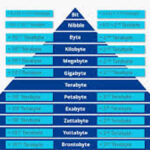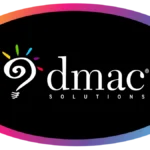Dialogger is emerging as an essential tool for structured communication, bridging the gap between conversational interaction and analytical clarity. At its core, Dialogger functions as a platform that allows individuals, businesses, and organizations to design, track, and optimize dialogues in a way that is both meaningful and efficient. For users searching about Dialogger, the key intent is to understand what it is, how it works, its relevance in modern contexts, and how it differentiates itself from traditional communication tools. Within the first few minutes of use, most realize that Dialogger is not just a chat utility but a structured framework for intelligent dialogue management. It helps users not only converse but also learn from conversations, whether in customer support, collaborative work, research analysis, or digital learning.
The purpose of this article is to provide an in-depth exploration of Dialogger—its origins, applications, features, benefits, and limitations—along with practical insights into how it is shaping the future of human-to-digital communication. Structured dialogues are increasingly important in business, education, and healthcare, where precision and traceability of conversations matter. Dialogger serves as a repository of insights, storing conversations in formats that can later be analyzed, reused, and adapted for better outcomes. By combining conversational simplicity with systematic data organization, Dialogger represents a new wave in digital interaction where dialogue is not only a flow of words but also a source of measurable intelligence.
“Conversations are not just exchanges of words; they are frameworks of meaning,” noted a communication researcher, highlighting why platforms like Dialogger are gaining importance. With businesses and individuals relying heavily on digital discussions, having a system that organizes and interprets conversations can transform the way decisions are made and recorded.
What is Dialogger?
Dialogger can be described as a hybrid communication and analytics platform that merges dialogue management with structured data capture. Unlike conventional chat applications that simply enable real-time conversation, Dialogger emphasizes context, continuity, and actionable insights. Its design allows every message, response, or query to be categorized, stored, and referenced. This makes it particularly useful for industries that rely on ongoing exchanges, such as customer service centers, project management teams, and educational institutions.
In essence, Dialogger provides more than conversation; it offers a system to manage dialogue as a resource. Users can create conversation templates, establish automated responses, and maintain structured archives of past discussions. These archives become valuable not only for reference but also for training new staff, ensuring consistency in messaging, and improving operational efficiency. Unlike fragmented communication channels that scatter information across platforms, Dialogger consolidates discussions in one place, making them easy to retrieve and analyze.
Its versatility allows it to be deployed across multiple domains: a teacher might use it to track student questions over a semester, a company could use it to build knowledge bases from client conversations, while a healthcare professional might rely on it to document patient queries systematically.
Features of Dialogger
Dialogger stands apart due to its unique blend of communication and documentation features. At the user level, it functions like a conversational tool, but beneath the surface, it organizes content systematically. The core features include conversation categorization, role-based access, automated workflow triggers, and advanced search. These ensure that every conversation contributes toward long-term usability.
For businesses, one key feature is the ability to convert dialogues into structured insights. For example, customer complaints can be tagged and automatically linked to solutions, creating a reference guide for future interactions. In project settings, Dialogger can establish conversation hierarchies where each dialogue relates to a specific task or milestone. Such structured communication reduces redundancy and helps teams maintain clarity over long projects.
A defining feature of Dialogger is its real-time learning mechanism. By analyzing conversation trends, it highlights frequently asked questions, common issues, or recurring themes. These insights are particularly valuable for industries that rely heavily on user interaction, enabling proactive improvements. For instance, a software company could identify features that users struggle with most and adjust their tutorials or support systems accordingly.
Table 1: Core Features of Dialogger
| Feature | Description | Benefit to User |
|---|---|---|
| Conversation Categorization | Sorts and tags dialogues based on themes or keywords | Quick retrieval and structured archives |
| Role-Based Access | Provides customized access levels for team members | Security and controlled collaboration |
| Automated Workflows | Triggers actions or notifications based on dialogue content | Streamlined operations and faster task handling |
| Advanced Search | Finds specific conversations or keywords instantly | Saves time and ensures accuracy |
| Insight Extraction | Analyzes trends in conversations for recurring issues | Helps with strategic decision-making |
Applications of Dialogger in Business
Businesses today rely heavily on clear, traceable, and analyzable communication. Dialogger enters this space as a tool that does not just facilitate dialogue but also preserves it for organizational memory. In customer support, Dialogger can serve as both a live tool for resolving queries and a knowledge bank for handling future issues. This dual role transforms support teams from reactive responders into proactive problem-solvers.
In project management, Dialogger provides teams with continuity by documenting all task-related dialogues. Unlike emails, where important exchanges may get buried, Dialogger creates a searchable structure. Team members who join projects late can catch up instantly by reviewing categorized dialogues, which minimizes the loss of institutional memory. For leadership, Dialogger offers an opportunity to observe communication patterns, monitor project health, and identify bottlenecks.
Another powerful application lies in training. With Dialogger, training material can be built directly from real-world dialogues. For example, a sales team can create training manuals by reviewing how successful sales conversations unfold. This converts everyday communication into reusable organizational knowledge, making Dialogger not just a tool but an ongoing asset.
Dialogger in Education
Dialogger’s value extends beyond business, especially in the education sector where structured communication is critical. Educators often face repetitive questions from students across courses, semesters, or even years. Dialogger allows teachers to organize these questions into categorized knowledge bases. Students can then refer to these archives, reducing redundancy and ensuring equitable access to information.
In online education, where learners may engage asynchronously, Dialogger helps maintain continuity. A student asking a question late in the semester can still access insights from earlier discussions without requiring direct repetition from instructors. Moreover, educators can track themes in student queries, allowing them to refine course content and adjust focus on areas where learners struggle most.
Beyond student-teacher exchanges, Dialogger also facilitates peer-to-peer collaboration. Group projects often suffer from scattered communication across apps and platforms, but Dialogger ensures all discussions remain centralized, searchable, and tied to project outcomes.
Table 2: Dialogger Use Cases
| Sector | Example Use Case | Value Delivered |
|---|---|---|
| Business | Customer support query management | Reduced response time and stronger knowledge base |
| Education | Student Q&A archives | Consistency and improved learning outcomes |
| Healthcare | Patient query documentation | Improved patient care continuity |
| Research | Dialogue tracking during collaborative studies | Better accuracy and traceability |
| Training | Building resources from real conversations | Real-world based manuals and learning guides |
Dialogger in Healthcare and Research
In healthcare, where every piece of communication can influence decisions, Dialogger provides reliability. Patient queries, follow-ups, or clarifications can be documented systematically, ensuring that medical teams never miss critical details. Healthcare professionals benefit from its searchable archives, which make it possible to trace past interactions quickly. This contributes not only to patient safety but also to compliance with record-keeping regulations.
In research settings, Dialogger becomes a tool of accountability. Collaborative research often involves cross-institutional teams, where documenting every discussion can help maintain integrity and accuracy. With structured archives, research teams can revisit prior discussions, ensuring that nothing is overlooked. More importantly, it prevents duplication of effort while enabling distributed teams to stay aligned on project objectives.
A research coordinator summarized it aptly: “The difference between fragmented notes and structured dialogues is the difference between confusion and clarity.” Such insights explain why Dialogger’s structured approach is being adopted in knowledge-driven fields.
Benefits of Dialogger
The benefits of Dialogger extend across industries due to its adaptability. Its structured approach to conversations provides organizations with continuity, transparency, and actionable insights. Time efficiency is one of its greatest advantages; teams waste less time searching for past communications or clarifying repeated questions. For leaders, Dialogger offers visibility into communication patterns, making it easier to identify problems before they escalate.
Another major benefit is institutional memory. Organizations often lose critical knowledge when employees leave, but Dialogger ensures conversations remain documented and accessible. This continuity reduces disruption and supports long-term efficiency. For individuals, the benefit lies in clarity—being able to revisit conversations without scrolling endlessly through chat logs or emails.
The platform also contributes to inclusivity. In global teams working across time zones, Dialogger ensures no team member misses out on discussions. Every dialogue is archived, categorized, and retrievable, which supports fairness and accessibility in collaborative environments.
Challenges and Limitations of Dialogger
Like any emerging tool, Dialogger is not without challenges. The first limitation lies in adoption: users may initially resist structured communication, finding it restrictive compared to free-flowing chats. Another challenge is ensuring privacy, as sensitive dialogues, especially in healthcare or legal settings, must comply with strict data protection standards. Organizations must establish robust protocols to prevent misuse or unauthorized access.
Scalability also poses a concern. As archives grow, search and categorization must remain efficient. Without proper indexing or automated categorization, the system could become overwhelming. Furthermore, while Dialogger excels in structured environments, it may not appeal to contexts where informal communication is central.
Despite these challenges, the platform’s advantages far outweigh its drawbacks when deployed with clear guidelines. Like any tool, its success depends on the willingness of teams to integrate it into daily practice.
Future of Dialogger
Looking ahead, Dialogger represents more than a niche tool; it reflects the future direction of communication technologies. As artificial intelligence continues to merge with dialogue management, future versions of Dialogger could incorporate predictive insights, automated summarization, and context-aware suggestions. These enhancements would not only improve efficiency but also elevate conversations into actionable strategies.
In education, AI-powered Dialogger platforms might auto-generate lesson recaps based on student questions. In business, they might forecast customer needs by analyzing recurring dialogue trends. In healthcare, predictive insights could help identify symptoms earlier based on patient queries. Such possibilities demonstrate the potential trajectory of Dialogger as it moves from structured communication to intelligent dialogue transformation.
As one industry analyst put it: “The tools that organize our conversations today will shape our intelligence tomorrow.” Dialogger embodies that idea by transforming words into knowledge, and knowledge into future innovation.
Conclusion
Dialogger is not just another communication platform; it is a systematic approach to managing and learning from conversations. By combining structured dialogue with insightful analysis, it offers users a powerful tool to improve communication, preserve institutional memory, and extract value from everyday exchanges. Businesses, educators, researchers, and healthcare professionals alike are finding unique applications that extend beyond simple conversation.
While challenges exist in adoption, scalability, and data security, the potential of Dialogger far exceeds these hurdles. Its adaptability ensures relevance across industries, and its trajectory suggests a future where dialogue management becomes as critical as project management or data analytics. With emerging integrations of AI and machine learning, Dialogger stands poised to reshape not only how we communicate but also how we interpret and act upon communication.
In the end, Dialogger reminds us that conversations are not fleeting—they are resources that, when managed well, become lasting foundations for growth, decision-making, and innovation. It turns dialogue into data, and data into wisdom, making it an indispensable companion in the digital era.
FAQs
1. What exactly is Dialogger and how does it differ from a traditional chat app?
Dialogger is not just a messaging or chat platform; it is a structured dialogue management system designed to capture, organize, and analyze conversations. Unlike traditional chat tools that emphasize quick exchanges, Dialogger creates archives that are searchable, categorized, and retrievable. This structured approach makes it a valuable tool for businesses, educators, and researchers who require continuity, accuracy, and insight from conversations. While a chat app may simply store messages in a thread, Dialogger transforms those same messages into usable data for training, reference, or strategic improvement.
2. Who benefits most from using Dialogger?
Dialogger benefits a wide range of users. Businesses find it valuable for customer support, training, and team collaboration because it creates a knowledge base from daily interactions. Educators benefit from organized question-answer banks and structured student engagement archives, making courses more efficient and less repetitive. Healthcare professionals use it for documenting patient communication, ensuring safety and compliance. Researchers rely on it to track discussions across large, multi-institutional studies. Essentially, anyone who values conversations not just as exchanges but as reusable resources will find Dialogger indispensable.
3. How does Dialogger ensure security and privacy of conversations?
Dialogger incorporates role-based access, encryption, and compliance mechanisms to safeguard sensitive dialogues. For industries like healthcare or finance, where data protection is crucial, organizations can set protocols to ensure only authorized personnel can access specific categories of conversations. The system also allows anonymization of records when needed, protecting identities while retaining the learning value of dialogues. Like any digital platform, its effectiveness in protecting privacy depends on both its design and the practices of the organization deploying it.
4. Can Dialogger be integrated with other tools and platforms?
Yes. Dialogger is built with integration in mind, allowing businesses and institutions to connect it with CRM systems, project management platforms, or learning management systems. For example, customer service conversations logged in Dialogger can automatically update a company’s CRM, while classroom discussions can feed into a digital learning portal. The goal of these integrations is to ensure that structured dialogues do not exist in isolation but instead complement existing workflows. Future iterations are expected to expand these integration capabilities, potentially including AI-driven platforms for even deeper insights.
5. What challenges might users face when adopting Dialogger?
The most common challenge is user resistance. Many people are accustomed to informal, unstructured communication, so they may initially view structured dialogue as restrictive. Another challenge lies in managing large archives—without careful categorization or automated tagging, users may find it difficult to navigate older conversations. Additionally, organizations must be vigilant about data privacy to avoid misuse. Despite these hurdles, once integrated into daily practices, most teams find Dialogger improves clarity, reduces redundancy, and enhances long-term efficiency.











